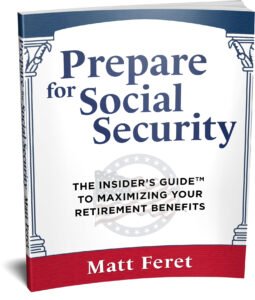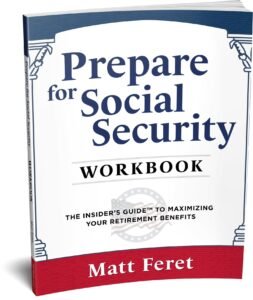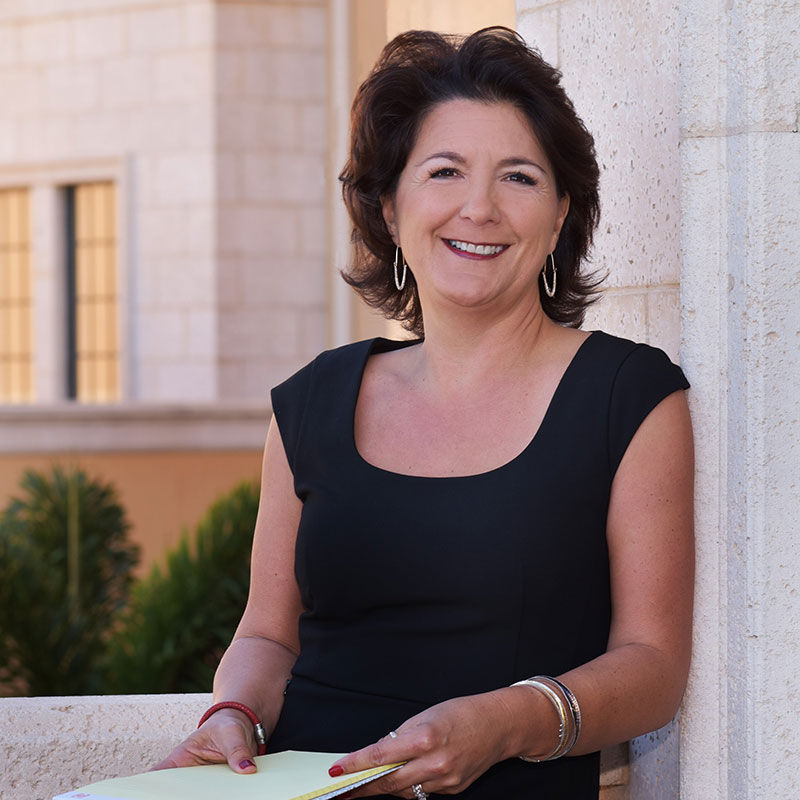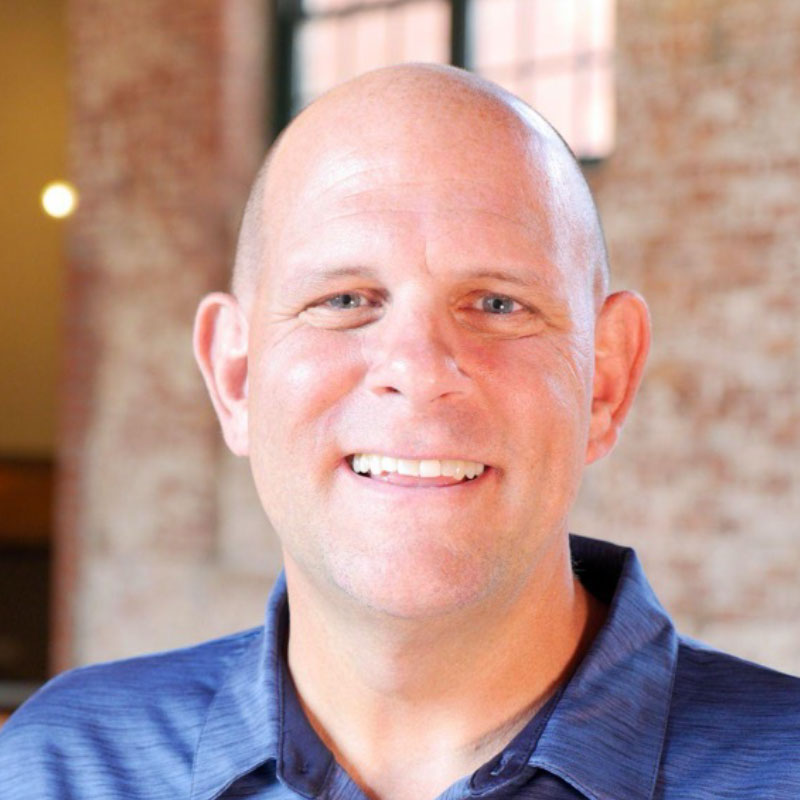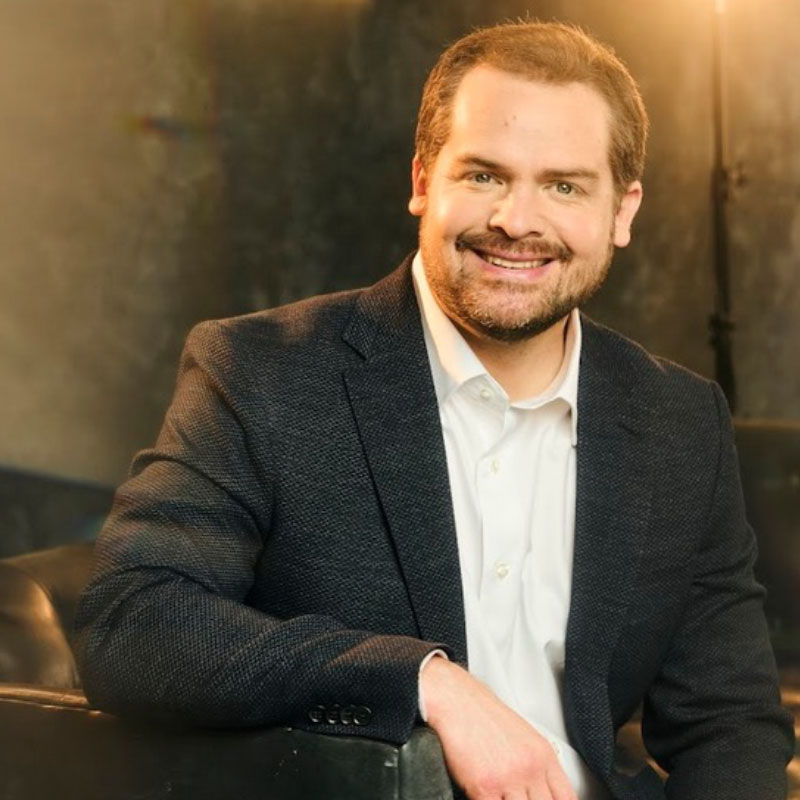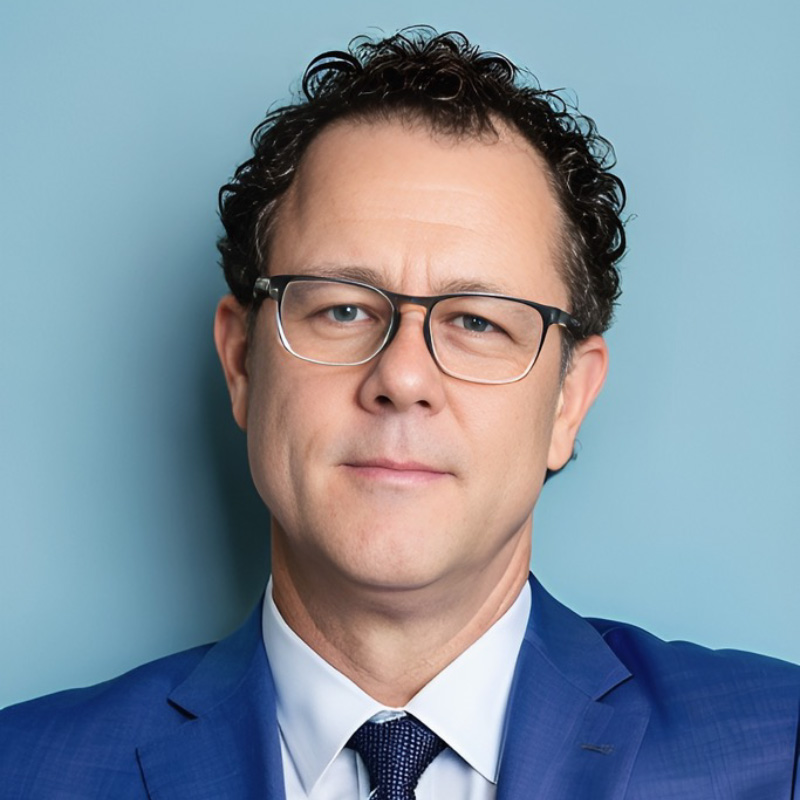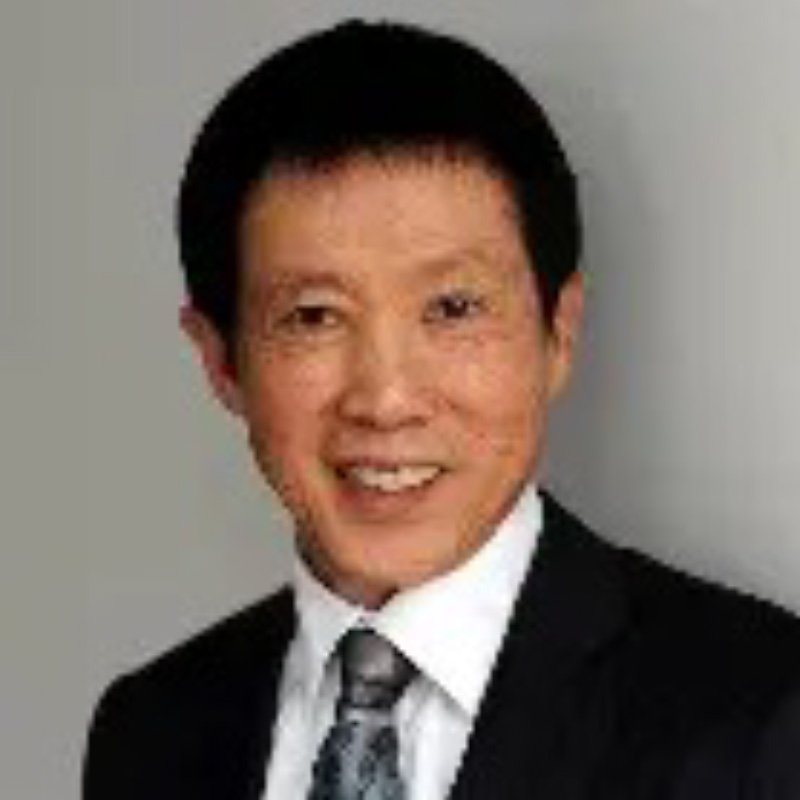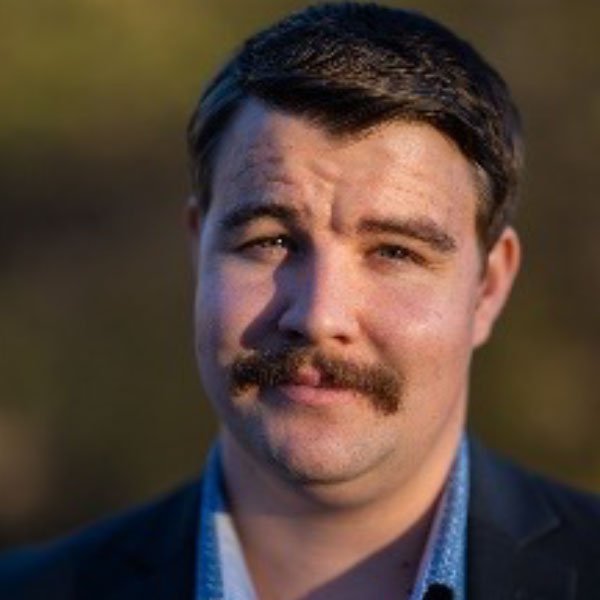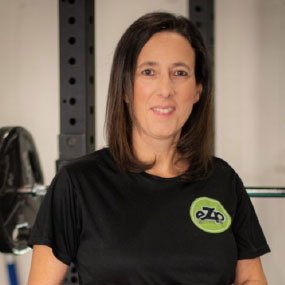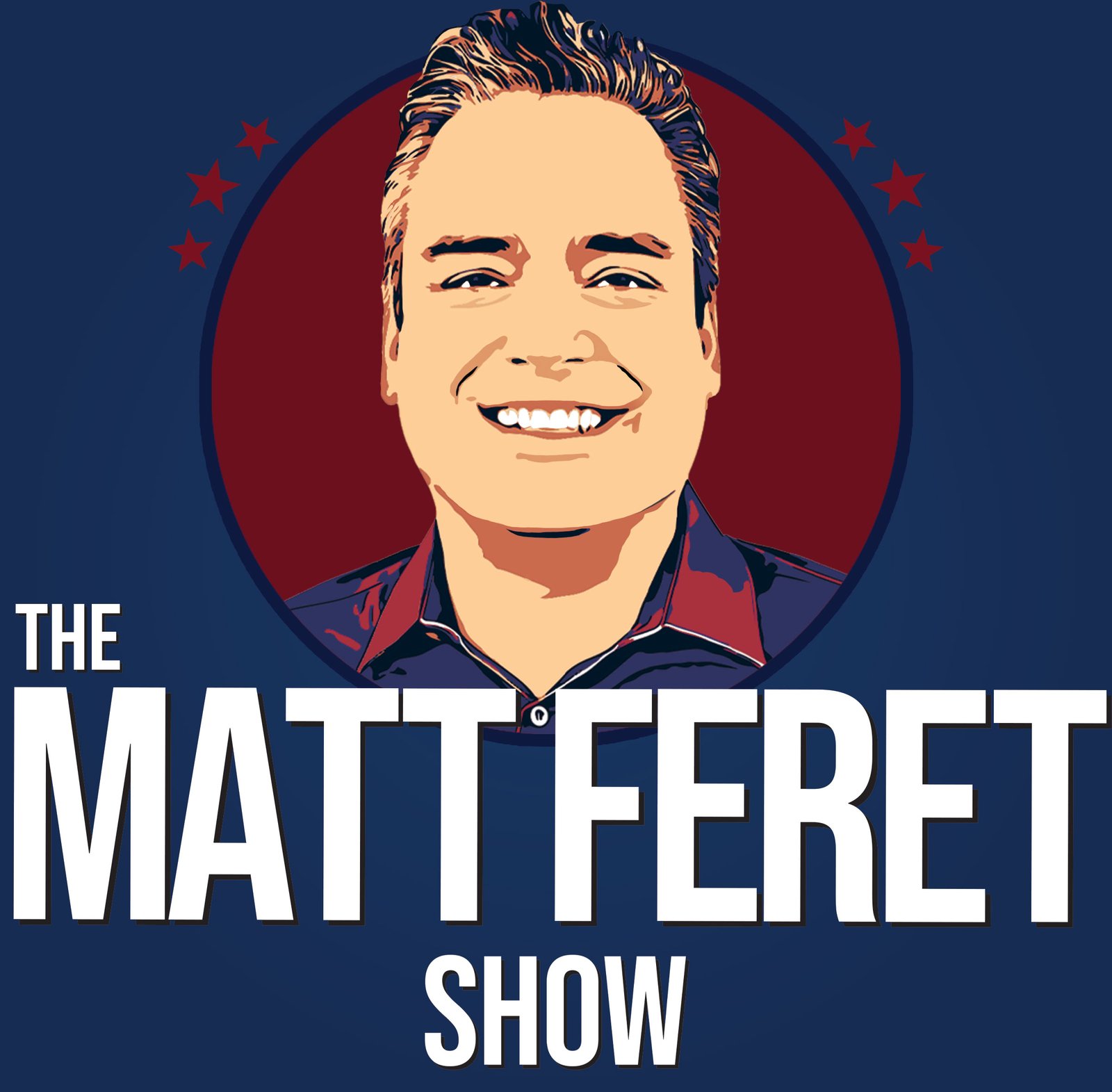#081
Share This:
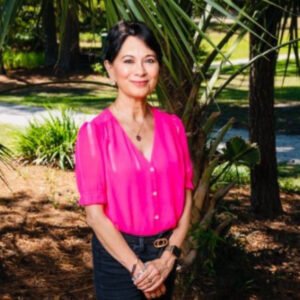
In this episode of The Matt Feret Show I sit down with Laura Rodriguez to explore how adults over 50 can benefit from gentle yoga practices. Laura has decades of experience with gentle yoga and has used her expertise to write two books with helpful insights on incorporating yoga into a healthful life. Together, we explore the nuances of beginner yoga, techniques, and holistic benefits to yoga practice over 50.
If you enjoyed this episode of The Matt Feret Show, you may enjoy:
How to Overcome a Sedentary Lifestyle & Increase Your Health with Personal Trainer, Sammy Wilson
Finding The End of Stress with Author Don J. Goewey
Holistic Wellness and Decentering Pharmaceuticals with Pharmacists Sylvia and James Boblak
Listen to the episode on Apple Podcasts, Spotify, Deezer, Podcast Addict, Stitcher, Google Podcasts, Amazon Music, Alexa Flash Briefing, iHeart, Acast or on your favorite podcast platform. You can watch the interview on YouTube here.
Brought to you by Prepare for Medicare – The Insider’s Guide book series. Sign up for the Prepare for Medicare Newsletter, an exclusive subscription-only newsletter that delivers the inside scoop to help you stay up-to-date with your Medicare insurance coverage, highlight Medicare news you can use, and reminders for important dates throughout the year. When you sign up, you’ll immediately gain access to seven FREE Medicare checklists.
Quotes:
“You don't have to do those acrobatic, visually impressive poses that you see splashed on magazines and in books, because those can be intimidating. You can just do a very simple practice consistently; I say at least four to five times a week. That's my personal opinion, to benefit and to really feel your best along with other things. I don't do yoga and isolation. It's one of my pillars of a healthful lifestyle.”
“Gentle slow yoga requires you or allows you to really focus on being present in the moment. At tuning into your body: how it feels, staying quiet, getting quiet and enjoying that quiet and that peace, that calm. It offsets our often frenetic, modern lifestyle. I think that's another key benefit.”
“I have always felt energetic. I don't feel the age I am, at least in my mind. So, I think that's all due to yoga and then other things that I do to maintain a healthful lifestyle. After age fifty, bodies are going through different changes, and you just have to be more mindful. It does require more maintenance, but you can make it fun. You can make it pleasurable.”
#081
Selected Link from the Episode:
Host’s Links:
All Things Medicare: prepareformedicare.com
Decoding Social Security: prepareforsocialsecurity.com
My Written Works on Amazon: www.amazon.com/stores/Matt-Feret/author/B09FM3L4WW
The Matt Feret Show YouTube: www.youtube.com/@themattferetshow
Network with me on LinkedIn: http://www.linkedin.com/in/mattferet
Follow me on X: twitter.com/feret_matt
See behind the scenes on Instagram: www.instagram.com/matt_feret/
Join our community on Facebook: www.facebook.com/themattferetshow/
Guest’s Links:
Amazon bookstore: https://www.amazon.com/stores/author/B0054MKEMI
LinkedIn: https://www.linkedin.com/in/lauravrodriguez/
Instagram: https://www.instagram.com/thetarotgenie/
Full Show Transcript:
Announcer:
This episode of The Matt Feret Show is brought to you by the Brickhouse Agency. Brickhouse is a boutique independent health insurance agency that focuses on finding the right Medicare coverage for folks across the country. Matt's wife, Niki, is the heart behind Brickhouse. She's great at making confusing things clear and is passionate about helping people find a Medicare insurance policy that suits their individual needs. To schedule a free one-on-one appointment with Niki or a member of her team, head on over to brickhouseagency.com or simply call (844-844-6565), and someone will help you schedule a phone call or a Zoom meeting. The consultation is free because the insurance companies pay Brickhouse, not you. There's never any pressure or obligation to enroll. Your clearer, simpler Medicare journey is just a call or click away. brickhouse agency.com. Not affiliated with or endorsed by the government or federal Medicare program. Contacting Brickhouse Agency LLC will direct you to a licensed insurance agent.
Introduction to Laura Rodriguez and Wellness Practices with Matt Feret [1:09]
Matt Feret:
Hello everyone. This is Matt Feret, author of Prepare for Medicare and Prepare for Social Security Insider's, guidebooks, and online course training series. Welcome to another episode of The Matt Feret Show, where I interview insiders and experts to help light a path to successful living in midlife retirement and beyond. Laura, welcome to the show.
Laura Rodriguez:
Thank you. It's great to be here. I've been listening to your podcast, really enjoying them.
Matt Feret:
Hey, thanks. And I'm glad you're here too because it's a topic I'd love and I want to know more about. But before we get into that, tell everybody what you do, how long you've been doing it, and how you help people.
Laura Rodriguez:
Well, I am on my second career almost three years ago. I retired from the federal government. I was a researcher, writer, analyst in international trade, and now I'm doing something completely different. I'm focusing on researching, writing and sharing information about ancient and modern best practices to optimize your body, mind, and spirit, your overall health and vitality after age 50. So anything related to that. And my yoga book is one facet of that. Doing yoga is one facet. The physical aspect is one facet of that.
Matt Feret:
Tell me about the background and the work that led you to do what you're doing today. And then I definitely want to get into yoga, but how did you decide to take your degrees plural and your experience and move in this direction?
Laura Rodriguez:
Well, ever since I was a little girl, I recall I had an innate interest in health. I was, back then, I'm dating myself, but when the Surgeon General first came out with the reports about the dangers of smoking, my mother was a smoker for a while and I was urging her on to stop, and she eventually did. So I don't know, it just came from, it was just an innate interest. And then secondly, because I was such a klutz, I was very uncoordinated growing up, just klutz. I was always the last person picked on a team. I was always on the lowest team, whatever it could be. And so by high school, I was really concerned that I wasn't getting enough exercise. So came across yoga. There was a yoga magazine, Philadelphia magazine, where I grew up, on my mother's coffee table. I read that and became really intrigued about yoga. And that was when yoga was just really starting to seep into the United States in 1970. So that prompted my interest, but I've always been focused, maybe because of growing up a little insecure, of just how to optimize my life and also not accepting conventional wisdom, especially when it's talking about limited thinking. For example, like a woman who was in yoga recently and said, her doctor said, oh, she had an injury at your age, blah, blah, blah. And just that whole concept of, oh, at your age there are these limitations. I mean, granted, there's certain stages in life that carry along certain things with them, but I don't agree with the whole premise that at a certain age you're done or you're limited. So I've always been fascinated by that. And the yoga brought my, prompted my interest in meditation. I took meditation after I finished high school, transcendental meditation.
Matt Feret:
Oh, you're doing TM in high school in the seventies.
Laura Rodriguez:
Yeah, 1973. So, I just celebrated 50 years of doing TM this past summer. So that, and just anything, I've always been interested in how you can make the optimize yourself, your body, mind, and spirit. So I was in a career that I first thought I was interested in college. I didn't follow that track at all in college. I focused on political science and French and then pursued a career in international trade, but realized over time that really wasn't my passion. It was a good career, liked my colleagues, but it wasn't my true passion. So I finished that up three years ago, and now I get to do what I really love doing and get to explore and research and share information about both ancient and modern practices that can help you optimize your life, especially after age 50.
Matt Feret:
I love it. Thanks for the background. And then now I'm going to ask you, since you've got how 20 plus years doing yoga, you wrote a book, talk to everybody about why you wrote the book first and then what's in it?
Laura Rodriguez:
Well, I wrote the book. I actually been doing yoga now 53 years since 1970, gentle yoga. And I've expanded to take some yoga classes. I took very few yoga classes. I learned primarily these two books, you'll see how old they are. I mean, they're really yellowed. One is Yoga Youth and Reincarnation by Jess Stearn. He was a famous journalist, or he was a well-known journalist back in the sixties, seventies, wrote about Edgar Casey, et cetera. And he got into yoga because he had pain from a whiplash, and he was in his forties when he got instruction in yoga. And it really enhanced, improved his life. And then I also came across this book as my other core teacher for many years, Yoga for Beauty and Health. And that book emphasized the going very slowly, doing a slow practice, a gentle practice, never pushing or straining. And so I followed these two books religiously and never experienced any injuries. And I only recently, I have to admit, I did have a little injury a couple months ago in class because I moved too quickly. It was a more intense pose. And so I realized, wow, that's one of the drawbacks of certain if you don't really follow and really listen to your body. But I wanted to start writing books. And so I worked with a business mentor and he said, well, what have you been doing for a while? I said, well, I've been practicing yoga. Back then, it was 40 some years, so I had another edition of my book. It was called Yoga at Home, and it was basically similar to this, but I've updated it and then just focus on the overall concepts of yoga practice and how to make the most of it, and how you don't have to do those acrobatic, visually impressive poses that you see splashed on magazines and in books, because those can be intimidating is you can just do a very simple practice consistently, I say at least four to five times a week. That's my personal opinion, to benefit, to really feel your best along with other things. I don't do yoga and isolation. It's one of my pillars of a healthful lifestyle. But I wanted to share that because I think what stands out about my book is that I'm not a yoga instructor, never taken yoga teacher training. I'm just sharing what I have experienced over many decades of practicing yoga and how I still feel really good. And most days, although last night I didn't fall asleep for some reason, but I still feel good today. But overall, I'm not complaining. Like I hear some of my peers about various ailments or aches, and I noticed that the people who are in the yoga class who've been attending regularly, they too are benefiting. They're much more mobile and look happier. They're not complaining about various aches and pains. Granted, some people do have to have a certain time passes, one had a hip replacement, but she's back at it doing yoga. So I think it's overall, it helps you really live life mindfully and get the most out of life. So I just wanted to share my experiences and tips and show how it can be very accessible and that you don't need to do those really difficult and intimidating poses.
Yoga Practices for Beginners with Laura Rodriguez [9:21]
Matt Feret:
Well, let's take the next section in two parts. And the first part, for the uninitiated or those not familiar, not everybody's familiar with the word yoga, but the ones that maybe have tried it a couple times, maybe got a free week, felt good, but couldn't do some of those crazy poses that were going on, or just kind of starting from scratch. No matter the age, what is your advice and around someone who's maybe been around it thinking about it, done it a couple of times, maybe there's a family member. And then the second part, which I'll remind you of after we're done with the first, is let's talk about age specific in terms of if we've been doing it or not doing it over the age of 50. So the first part is if I kind of know what it is, and I've kind of done it a few times, maybe at the Y or at the gym, or I got a freebie, like a little Groupon action going on, but I'm interested and I want to get into it more, what's my approach?
Laura Rodriguez:
Well, I do think it's helpful since from my personal experience, I learned from those two books starting out and what was beneficial and what stood out about those two books is that, which I haven't always found in classes, that's one of the drawbacks, although I'm in a good class now, but it's really not for beginners. So if you're a beginner, I do think it's good to look to make sure if you're looking into classes, make sure they're really targeting beginners because a lot of classes don't. You go in there and they're already mentioning the Sanskrit terms, this pose or that pose, and you can be really lost because after my many years of yoga started attending this class last year and I was aware the instructor is very good, but she mentioned some poses and I thought, well, someone coming in here as a beginner, they wouldn't know what she's talking about. And so that's why I found that books. And now of course you have many, many YouTube videos and I think there are a few that are really good for beginners. I think there combination of those plus really investigating a class to make sure it's for beginners, make sure that the instructions are really detailed. And that's what I believe I provided in my book is to go through it methodically, exactly what you're doing during the pose and then what the specific benefits are. I mean, I think that's where, or that helps you avoid any injuries. And I always emphasize throughout my book, go in baby steps if a pose is supposed to be held for 30 seconds or a minute, start out five seconds and just build up gradually. But I think armed with both, I think if you have a real strong interest in yoga and benefiting from it fully, check out the classes, make sure they're really targeted to beginners, make sure they're not overcrowded. I think you need to be upfront to actually see the instructor. I'm always upfront, I'm short, so I'm always upfront in any situation, in any class, et cetera. But I think you do need to really watch the person and then check out a variety of books. It doesn't have to just be mine, but I do think you need to have books that really detail every pose and explain exactly what the purpose is and exactly how to do it. I think those combined with all those different aspects are important for someone if they want to get the most out of yoga and avoid any potential injuries.
Matt Feret:
I really like how you combined the YouTube, right? They're everywhere. And again, we can joke all the 25 year olds bending their bodies in half and holding in one arm shoulder presses for five minutes. It's really intimidating. I can't do it either. But then also looking at the book, the why behind the yoga, it's not only flexibility and stretching and toning, there's also a mental piece of it. I guess I could call it a bit of a meditation piece to it if it's been done. So identifying where I am in my health journey if I've never done it before, I've only done it a couple of times, but I'm interested in getting into it. You said books, maybe poke around YouTube for something that clearly says beginners. And then little sidebar question here is when you go to a class, I've done this, I've gone to a yoga class. I mean these guys, they're ripping through it. I mean, it's okay now go to child's pose. Okay, now go to downward dog. Now do the, I don't even know all the words, you know that, but right. And I'm like, slow down. I have to move. I have to think about what I'm doing. That's not a beginner class or that is, am I expected to have that pace or should I start way slower than that?
Laura Rodriguez:
Well, that's why I think, see, I was this fitness club I joined last year in my neighborhood. That's when I realized, oh, this is not really for beginners. Most of the people in there had been doing it for a while. But I think yes, you need to seek and there may be a void in the market. I don't know. I haven't gone to many beginner classes. I think I went about 10 years ago to check one out when I lived in Maryland. And that was good. The instructor went through slowly explained everything. So I think you maybe have to do some research and find out if it is truly a beginner's class. I would say that I think the best way to start yoga is the gentle yoga. Not power yoga, unless you're 20 years old. Even then, I think my whole philosophy is start slowly and build up.
Matt Feret:
Yeah, you can injure yourself doing yoga, right?
Laura Rodriguez:
Yeah. Last year, even if something's new to you, no matter what your age, I mean, I had injury not from yoga, but from other things when in my twenties. It's just anything you're putting your body in new position or if you're really challenging yourself and you have, the first time I ever ran a mile in high school, I was 18, I was sore. I felt like an old person for several days because that was too much too soon. So it doesn't matter even what age, but especially though after age 50, I mean there are some things we can't deny. Your body changes. So I think yeah, finding, I don't know, I haven't looked myself, but really investigating to see if it's an actual beginner's class and how many people are in it. And if the instructor, maybe if there's a way to just sample the class so that you don't get frustrated. And I'll try to keep up because sometimes the instructor in the classes I attend, sometimes she goes a little bit quickly too because I’m used to doing things really slowly in my home practice. And I think what you were saying about the other aspect of it is, I think because especially with the gentle slow yoga, is that it requires you or allows you to really focus on being present in the moment, at tuning into your body how it feels, staying quiet, getting quiet and enjoying that quiet and that peace, that calm, that offsets are often frenetic, modern lifestyle. I think that's another key benefit. So yes, I think you really have to investigate the type of class, but that's for years, at least 40 years or more. I just did my own home practice so I could do it. And the benefit of that, which I presented in my first edition of the book was that you can go at your own pace and you can do something longer or shorter than the instructor is pacing you at. So I would give all those considerations when starting out a practice.
Matt Feret:
I mean, I guess maybe, I guess the only times I've ever done it, I mean I've done it at my house before when my wife wants me to and I feel like it, but no, I end up feeling like I need an instructor. Is it different for every person or can you do this at home without having to pay crazy amounts of money every month?
Laura Rodriguez:
Right. It does differ from, I happen to be self-motivated. I have friends who say, well, they just won't do yoga. They have to go to a class. I mean, when I was working in the federal government was raising my kids. I didn't feel I had time to go to a class. So I just woke up in the morning, got ready, and then went down to my rec room and did yoga there. So it was easier, but I just think, yeah, you do have to figure out what your personality, some people definitely prefer class, they want to be around other people. They're more, and you just maybe you have to test it out for yourself. I mean, if you know you're not going to be motivated to do it at home, then seek out classes. But again, if you're starting out, I would look for gentle yoga, gentle hot yoga, slow yoga, not the power yoga.
Matt Feret:
Don't dive into the deep end
Laura Rodriguez:
Yeah, the very challenging type forms of yoga.
Matt Feret:
From a physiological standpoint, I tend to overdo things. I'll go run that four miles when I haven't jogged in a year and do the exact same thing that you felt when you were 18 that everybody else is nodding their heads, listening to now going like, yeah, dummy, don't do that. But I end up feeling like if I go slowly, I'm not getting the burn, I'm not burning the calories, I'm not doing everything. How do I know how to listen to my body to start slowly? I can justify that using logic in my brain if I haven't done it in many, many years or months. Don't start out, pick up where you were when you quit, but how do I pay attention to my body or do I talk to my instructor around when the next kind of phase and stage of this when I'm ready for it?
Laura Rodriguez:
I think you have to learn to listen to your own body. I mean, the instructor might provide advice. Typically the instructor will say, and the one I have which says, if anything feels uncomfortable, don't push yourself. But that person can't. They don't know how your body feels. It's only you. And so for example, after that injury, I think it was from a strenuous yoga position that was new to me back in July of this year, I really couldn't do, I couldn't even do child pose, which was one of my favorites because my upper right thigh swelled and I did have an MR, I had some tear. I don't know whether it was from that. I don't know. I have problematic feet, I have bunions, I have weak ankles, so I have some structural issues. But what I did was now I'm doing everything that I did before is just I really listened to my body. I just, well stayed off of everything for several weeks. I could just tell. I just thought, okay. And then I moved, tried a little bit when it felt comfortable. There were a couple of times I did misread or I got too optimistic and then I had a setback because I didn't listen well enough. So I think, well, one thing about the gentle yoga, or at least maybe it's just myself, but I just really do try to tune into how my body feels and is that okay? No, seems to say stop. I mean, my body tells me to stop. Okay, only so much coffee. I've never typically overindulge in anything, but I think the practice of gentle slow yoga, if you do that really mindfully and really focus on every movement, you start developing even greater knowledge of how you feel. And so you can't go into gentle yoga thinking you're looking for the burn. That should complement some other type of aerobic exercise. I mean, I also jump on the trampoline, and I walk briskly for that aspect of healthful lifestyle.
Matt Feret:
Nice.
Laura Rodriguez:
Would just say, yeah, just be patient and don't push yourself too much in the beginning just to really just, just take the opposite of maybe what your natural inclination is to go and say, okay, no, you can't for this. If you want to benefit long-term and keep it up to maintain your practice.
Exploring Yoga After 50 with Laura Rodriguez [22:06]
Matt Feret:
Thank you. Let's move into that whole second part of the question, which I probably mentioned 10 minutes ago, so I'll repeat it again. Let's get into yoga after 50. Part of that book title yours. Again, you're not an instructor, but you probably could be have to do it all these years, but I know that takes hours and hours. My sister's a yoga instructor and it was, my gosh, it was like she got a PhD. It seems like the amount of time that she had to study and then take tests and practice, and then now she's eventually leading these things. So I know it's a big deal when you're certified yoga instructor, it's not just a weekend course and then you get a little, it's a very big deal. So hats off to folks who have done that and then help a bunch of people. So over 50, yoga over 50, what are the changes or extra considerations or reasons to do it? No reasons not to do yoga. And even if you haven't been or you have been for many years, what are the considerations people- we’ll just pick that number- over the age 50 have to think about?
Laura Rodriguez:
Well, a lot of people of course go through changes. Women go through menopause and people generally after age 50, lose must start losing muscle mass. And if you've had a sedentary lifestyle, I mean, I was at my desk basically writing and researching all day. If you had a sedentary, sedentary lifestyle, maybe if you haven't been exercising much, you're going to start getting stiffer. There's a man in my class yoga class, and he was having back issues getting out of bed. He's around my age, but the yoga's really helped him. He no longer has that problem, he said because of the yoga. So things, yeah, your body shifts, you maybe some people, yeah, they definitely get stiffer if they're not keeping it up. Again, I'm not a physician, know all the changes, but it's just over time you feel like you can't do as much as you could before if you don't. I guess the way I think about it is as the years go by, you just have to be more mindful. You have to maintain more, I guess when your car is older, it needs more checkup, it needs more maintenance. In the first few years, it doesn't require that much, but over time to keep it going, to keep it running efficiently does require more maintenance. You have to be more mindful what you could get away with at age 25. You can't at age 50 and beyond. And that's why I think especially after age 50, that gentle yoga, I mean, I would argue that for any age, but this is ideal if that's your introduction to yoga, is to start with gentle yoga. Again, as I said, I was a klutz uncoordinated, and I'm still like that sometimes when the instructor presents a new pose, some of these side planks or whatever, I don't have the balance. I mean, I'm wobbling all over the place, but that's just part of it. But that's why I think the gentle yoga and what I present in my book, some of the poses are challenging. But again, I always advise start out slowly, and I think they're accessible to most people. And then I definitely have always felt energetic. I don't feel the age I am, at least in my mind. So, I think that's all due to yoga and then other things that I do to maintain a healthful lifestyle. So just I think except after age 50 bodies going through different changes and you just have to be more mindful and it does require more maintenance, but you can make it fun. You can make it pleasurable. You can make it a nice ritual, but it's worth it. I heard recently there was someone, I don't remember his name, but he said as far as making a decision about exercise and helpful lifestyle, he says, how do you want to feel and operate in the last decade of your life? I mean, you want to be hunched. I mean, not that we can control everything. There are no guarantees. But if you think, answer that question for yourself, well, you want to maintain activity, eat healthfully to at least maximize your chances of, as he said, being able to lift your grandchildren or run around with your grandchildren, whatever the case may be. It does require an intention of a healthful lifestyle and taking action steps. And it doesn't have to be difficult. You don't have to spend 10 hours a day doing it.
Matt Feret:
Are there things, in your experience, what you've read and researched around yoga after 50 that you have to be more mindful of? I mean, obviously I think it's one of those obvious points is the whole, you mentioned side planks and upside down contortions that maybe you can't do if you're not new to yoga and you've been doing it and you want to deepen your practice and tweak your practice based upon the age of 50. Again, we're just picking it. It could be whatever. If you've got someone that's doing it or experienced in doing it. Are there things that to take you from beyond gentle, if you're already midpoint or you're already doing hot yoga, that's a big thing. Are there other considerations or other programs or other things to think about if you're already well practiced and you want to make sure you're tweaking your practice to the appropriate age and not age 20?
Laura Rodriguez:
Right. Well, I guess because noticed in the classes I take, we don't get a lot of personal, I mean, the instructor doesn't go around and check us all. So I think if you were concerned about that, or sometimes I've thought maybe I need at least invest in personal yoga coaching to be able to do X, Y, Z, or to make sure I'm doing certain poses correctly so that I'm not moving my back out in an odd way. So I think that's the only consideration or that's what I would advise if you were concerned about that. I mean, I still am able to do all the poses I could do before, but someone asked me a question yesterday, an email, and she said, she's looking at the gentle yoga’s getting my book. Did she need to know anything about osteoporosis? And I said, well, because she has osteoporosis, I said, I'm not a doctor. I would just say again, well, that's for a beginner, but you have to go slowly. But if you had a concern, I guess I would invest in maybe a couple hours of personal coaching, get a yoga instructor too, if you have, I mean, I haven't reached that point. I haven't felt the need for that so far. But that would be the only thing that comes to mind to really check on that. Someone who really has a strong knowledge of anatomy, which I don't, I mean, I only know what the poses are and how they benefit, but some instructors really know their anatomy and can explain and how one maybe how to more effectively do certain poses given your age.
Matt Feret:
And so your book then walks the reader through kind of starting at zero, right? It's starting at or near zero, kind of like where I am, maybe near zero, I've done it. I kind of know a couple of names. Yeah, I've got a mat, I've got a block. It's in the garage. It gets used every once in a while. So people start, is it front cover to end kind of book? Do I flip around? Tell me how I should use the book if I'm just kind of poking around this and getting into it?
Laura Rodriguez:
Well, the book I start from kind of like from A to Z, your mindset, some background, my overall philosophy on how yoga's benefited me and the mindset, you need to take the mindset just for do you have the time to carve out for yoga? And I argue about that. It's just decision. And that's what I do. I will offer all your listeners or viewers a free Zoom code if they send me an email and can have that in show notes, free, no obligation, 45-minute Zoom coaching call where I discuss, okay, what's your lifestyle now? What's your schedule and how to include yoga in that and do it methodically. But yes, that's why I take the reader through why I started yoga, who I am not an instructor, but how much I've benefited from it, how I'm a klutz, if I can do it. Most people can do it unless you have some, and I always would say you do need to check, especially after each 50 with your physician or licensed medical practitioner, just to make sure, because I can't speak to any possible condition that the poses might possibly compromise. But that said, overall, I basically set up how I began, why it's beneficial, and how anyone can benefit from doing about up to 20 poses and how you can incorporate into your life. And then I have the whole section chapter on about 20 poses, and I explain exactly each pose, what type of a pose it is, the Sanskrit name for most of them, and how to go through it step by step, my special tips or hints that my experience with that pose and how long to hold it, et cetera. So I try to really guide someone from point A to Z who's just starting from nothing to get to begin and incorporate yoga into their life. And I even have a commitment sheet at the end. If you want to benefit, feel your best no matter what your age commit to doing this. And then I have some resources in the back to other places too, other books, other some YouTube channels I recommend to really make yoga part of your life.
The Holistic Benefit of Yoga with Laura Rodriguez [32:17]
Matt Feret:
Nice. Thank you for walking me through that. Think second to last question. I've been focusing on the physical aspects of it. We did touch on mental and holistic and whole health kind of pieces, but if anybody listening or watching, if look in fifties, sixties, seventies, there are a lot of life changes that can happen. The grandkids, graduations, divorces, deaths, retirement. I mean that's what this show is about. All the other stuff around retirement from a mental health standpoint, from a calmness, a peace standpoint, in your experience and what you've found through your research, the other side of yoga, which isn't really 10 or 20%, it's probably 50% right, of maintaining your mental balance and your mental strength as well as your physical strength. Give me a treatise on why yoga after 50, given all that's going on in that timeframe and beyond,
Laura Rodriguez:
Why it's beneficial from the mental aspect?
Matt Feret:
Yes, absolutely.
Laura Rodriguez:
Especially from if we're looking talking about gentle yoga, if you go into something like power yoga, some of those really intense, I can't address that because I've not really experienced those. But for example, whenever I attend, I attend gentle yoga class twice a week. I do my own practice now once a week because I'm going to four classes a week. The rest of the time I go gentle yoga twice a week and this other Yin yoga and then yoga with weights a little bit more. But what I'm always impressed by is just, and this instructor's very good, she guides us through and she always kind of has this commentary that's very soothing. And as you mindfully move your body, and for me, I think how can anyone not do yoga? Especially some of the poses we do. I can just feel how beneficial it is not just for my body, it makes me feel so good, but that also physically, but also it makes me mentally just more at ease, calmer, because when you, a lot of the poses release stress and tension, so that in turn benefits your mind as well. You get calmer, you've got this tension release. In fact, sometimes people cry during yoga classes. I did give, even though I'm not an instructor, I've given a couple sessions at my college reunion and I remember the first time one of my classmates said at the end, she cried because it was releasing tension, maybe pent up angst or anxiety about something that I've been just stuck there. And so that's another benefit from the mind mental perspective that yoga brings. You're moving your body. It's a lot of restricted is released because you’re opening up your body in ways that we're not normally doing as we go about our daily lives. So think that's a definite benefit of the mental benefits of doing yoga. It's the calm, quiet, and just as you become more attuned to your body, it just opens up some things that you just didn't realize were there, allows you to get to really enjoy quiet. And often when I'm in the last, we call it the Shavasana, the last pose of a class or of a session is where you're just lying prone on your back and with your eyes closed, often I see things, I don’t know what's being released, but I see almost like, and I wouldn't say cartoon, but just things in colors and patterns, that kind of thing. And it's very soothing. So something, it's releasing something. So it does the opening and releasing of tension also calms your mind. So yoga is like a moving meditation, and that's I think why it's both physically beneficial and mentally beneficial.
Matt Feret:
That's a great summary. The book is Gentle Yoga After 50 Get Fit, Flexible, and Feel Fantastic. It's on sale today. Laura, what question or question did I not ask about yoga after 50 that I should have?
Laura Rodriguez (37:00):
What question you didn't ask? Well, you've been pretty thorough. Let me see. I guess one question maybe didn't ask is why more people don't do yoga?
“Why don’t more people do yoga?” With Laura Rodriguez [37:19]
Matt Feret:
You want me to ask it here? I'll ask it. Laura, why don't more people do yoga?
Laura Rodriguez:
Well, as of last year, 36 million Americans supposedly according to certain statistics are doing yoga. I mean, I don't know if that doing yoga, how often they're doing it, but I think even though it's so widespread now, I mean especially in big urban areas, metropolitan areas, there are yoga studios on every corner practically or at your Y or whatever. But still, I know there are people who don't do it because they still feel intimidated because still of the more commercial side, as we said earlier, those acrobatic poses can be very intimidating. Maybe even the Sanskrit terms can be intimidating. And surprisingly for me, even as of recently as a year or two ago, there are certain parts or certain groups of people who feel that if there're a certain religion that's going to require them to change their religion, which is not the case if they're certain type of Christian group or whatever. And so I think those factors can prevent people from, and some people may be the first time they do it as well. I've, one friend from a few years ago said, oh, it's painful. She was a little bit older. She said it was painful every time. So I don't know what type of practice she was doing, whether she was trying to do too much too soon, but that's why, again-
Matt Feret:
Yeah, she was probably like me. She was probably out there going like, all right, cool. I can touch my nose to my knee immediately. Let's give it a try.
Laura Rodriguez:
So I think those factors combined, even though you see people carrying yoga mats everywhere, but there are still people that are intimidated. And one of the people who read my book in my book club said she knew nothing about yoga. I thought, wow, I thought everyone knew about yoga. But there are lots of people still who don't know that much about yoga, and it just may look. I think the main thing is that it just looks too intimidating because the poses are putting your body into positions that you're not normally doing every day, but at the same time, it's really good for you. I mean, I feel that when I do these twists, the new twists that I learned, my body feels so good, my back, I thought, wow, this is so good. How can anyone not do yoga? Because it really, after a session of that, you just feel open and more alive.
Matt Feret:
This has been really insightful and helpful. Thanks so much for being on the show.
Laura Rodriguez:
Thank you. I've enjoyed it.
Matt Feret:
The Matt Feret Show related content, publications, and MF Media LLC is in no way associated, endorsed, or authorized by any governmental agency, including the Social Security Administration, the Department of Health and Human Services, or the Centers for Medicare and Medicaid Services. The Matt Feret Show is in no way associated with authorized, approved, endorsed, nor in any way affiliated with any company, trademark names or other marks mentioned or referenced in or on The Matt Feret Show. Any such mention is for purpose of reference only. Any advice generalized statistics or opinions expressed are strictly those of the host guests of The Matt Feret Show. Although every effort has been made to ensure the contents of The Matt Feret Show and related content are correct and complete flaws and regulations change quickly and often. The ideas and opinions expressed on The Matt Feret Show aren't meant to replace the sage advice of healthcare, insurance, financial planning, accounting, or legal professionals.
You are responsible for your financial decisions. It is your sole responsibility to independently evaluate the accuracy, correctness, or completeness of the content services and products of and associated with The Matt Feret Show, MF Media LLC, and any related content and publications. The thoughts and opinions expressed on The Matt Feret Show are those of the host and The Matt Feret Show guests only and are not the thoughts and opinions of any current or former employer of the host or guests of The Matt Feret Show. Nor is The Matt Feret Show made by on behalf of or endorsed or approved by any current or former employer of the host or guests of The Matt Feret Show.


